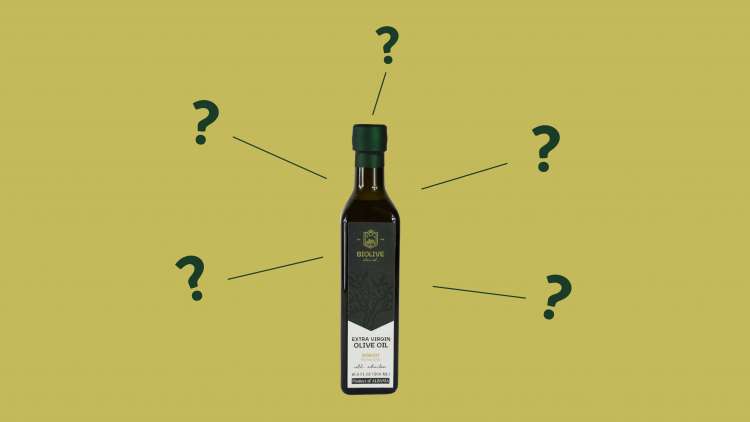Homer famously dubbed it "liquid gold," while Hippocrates, revered as the father of medicine, is credited with using it to cure over 60 ailments. Olive oil was bestowed upon winners of the Olympic games, who were crowned with olive branches and rewarded with amphoras filled with the precious substance. It's no wonder that olive oil is often referred to as the "King of Fats."
Unlike oils derived from seeds such as sunflower or peanut, olive oil is extracted solely from the fruit of the olive tree. The unique nature of the raw material, the olive fruit, is what gives this oil its special properties.
Olive oil is a substance of both richness and lightness, a mysterious elixir that is actually the juice of a fresh fruit. Its ideal composition of fats is perfectly suited for the human body, as it not only nourishes the mind but also thins the arteries. A food of ancient origin, olive oil possesses a quality that transcends time.
The taste and fragrance of high-quality olive oil are both bitter and pungent, much like the taste of life itself.
In this article, we present the primary health benefits of extra virgin olive oil, supported by scientific studies and health experts' advice.
1. BENEFICIAL FOR HEART HEALTH
Heart disease is the leading cause of death worldwide, and research has shown that the Mediterranean diet, which includes extra virgin olive oil, reduces the risk of heart disease. Extra virgin olive oil can protect the heart by reducing the impact of "bad" LDL cholesterol, preventing blood vessels' coating, and excessive blood clotting. It can also lower blood pressure, a significant risk factor for heart disease. For individuals with heart disease, a family history of the condition, or other significant risk factors, extra virgin olive oil is the recommended fat in their diet.
2. A SOURCE OF POWERFUL ANTIOXIDANTS
Extra virgin olive oil is not only nutritious, but it also contains potent antioxidants that are biologically active and may reduce the risk of chronic disease. These antioxidants also fight infections and protect the body's defenses against oxidation, further reducing the risk of heart disease.
3. GOOD FOR BRAIN HEALTH AND STROKE PREVENTION
The brain needs "good" fats to maintain its structure and communication, and extra virgin olive oil can provide these fats. The polyphenols and antioxidants in olive oil promote a process called "autophagy," which helps the brain detoxify itself and prevent damage to the cell's communication and connections. Additionally, studies have shown that consuming olive oil is associated with a reduced risk of stroke, the second leading cause of death behind heart disease.
4. RICH IN HEALTHY UNSATURATED FATS
Extra virgin olive oil is primarily composed of oleic acid, an unsaturated fat that makes up 73% of the oil's total content. Studies have suggested that oleic acid may help reduce the risk of certain diseases, including cancer. Additionally, unsaturated fats are resistant to high heat, making extra virgin olive oil a healthy option for cooking.
5. HAS STRONG ANTI-INFLAMMATORY PROPERTIES
Chronic inflammation is a major driver of various diseases, including cancer, heart disease, metabolic syndrome, type 2 diabetes, Alzheimer's, arthritis, and obesity. The antioxidants in extra virgin olive oil can help reduce inflammation, one of the main reasons for its health benefits. The anti-inflammatory effects are primarily mediated by oleocanthal, a key antioxidant in olive oil that works similarly to ibuprofen, an anti-inflammatory drug.
6. HELPS FIGHT ALZHEIMER'S DISEASE
Olive oil may help remove beta-amyloid plaques, one of the main characteristics of Alzheimer's disease, from brain cells. One human study found that a Mediterranean diet rich in olive oil can benefit brain function.
7. NOT ASSOCIATED WITH WEIGHT GAIN OR OBESITY
Studies have linked the Mediterranean diet, which includes extra virgin olive oil, to beneficial effects on body weight. High consumption of olive oil was not associated with weight gain in a 30-month study of over 7,000 Spanish college students. Another study found that a diet rich in olive oil was associated with increased levels of antioxidants in the blood and weight loss.
8. MAY REDUCE THE RISK OF TYPE 2 DIABETES
Olive oil appears to be protective against type 2 diabetes, as several studies have linked it to beneficial effects on blood sugar and insulin sensitivity. A recent clinical trial confirmed that a Mediterranean diet rich in olive oil reduced the risk of type 2 diabetes by over 40%.
9. Anti-Cancer Properties of Olive Oil's Antioxidants
Evidence suggests that olive oil may help reduce the risk of certain cancers, as seen in people living in Mediterranean countries. The antioxidants present in olive oil can counteract oxidative damage caused by free radicals, which are known to contribute to cancer development. Furthermore, research has found that olive oil may specifically target breast, colon, and prostate cancer cells.
10. Olive Oil as a Treatment for Rheumatoid Arthritis
Olive oil contains components that can reduce inflammation and oxidative stress in people with rheumatoid arthritis, an autoimmune disease characterized by painful and deformed joints. Studies have found that combining olive oil with fish oil, which contains anti-inflammatory omega-3 fatty acids, can be particularly beneficial for treating rheumatoid arthritis.
11. Olive Oil's Anti-Bacterial Properties
Olive oil has many nutrients that can inhibit or kill harmful bacteria, including Helicobacter pylori, a bacterium that can cause stomach ulcers and stomach cancer. Laboratory studies have shown that extra virgin olive oil can combat eight different types of Helicobacter pylori, three of which are resistant to antibiotics.
Sources: Olive Oil Times, Olive Wellnes Institute, About Olive Oil, Healthline, WebMD, MayoClinic, PubMed Central


